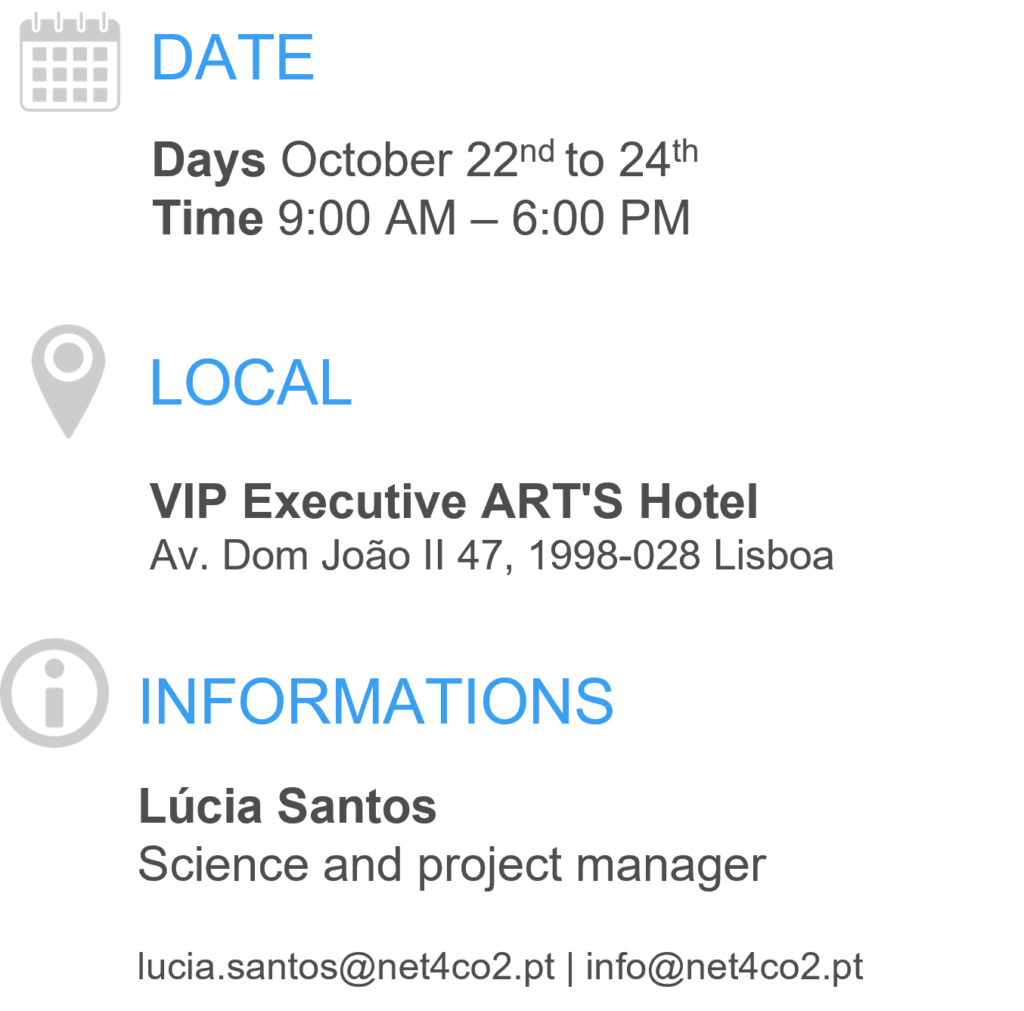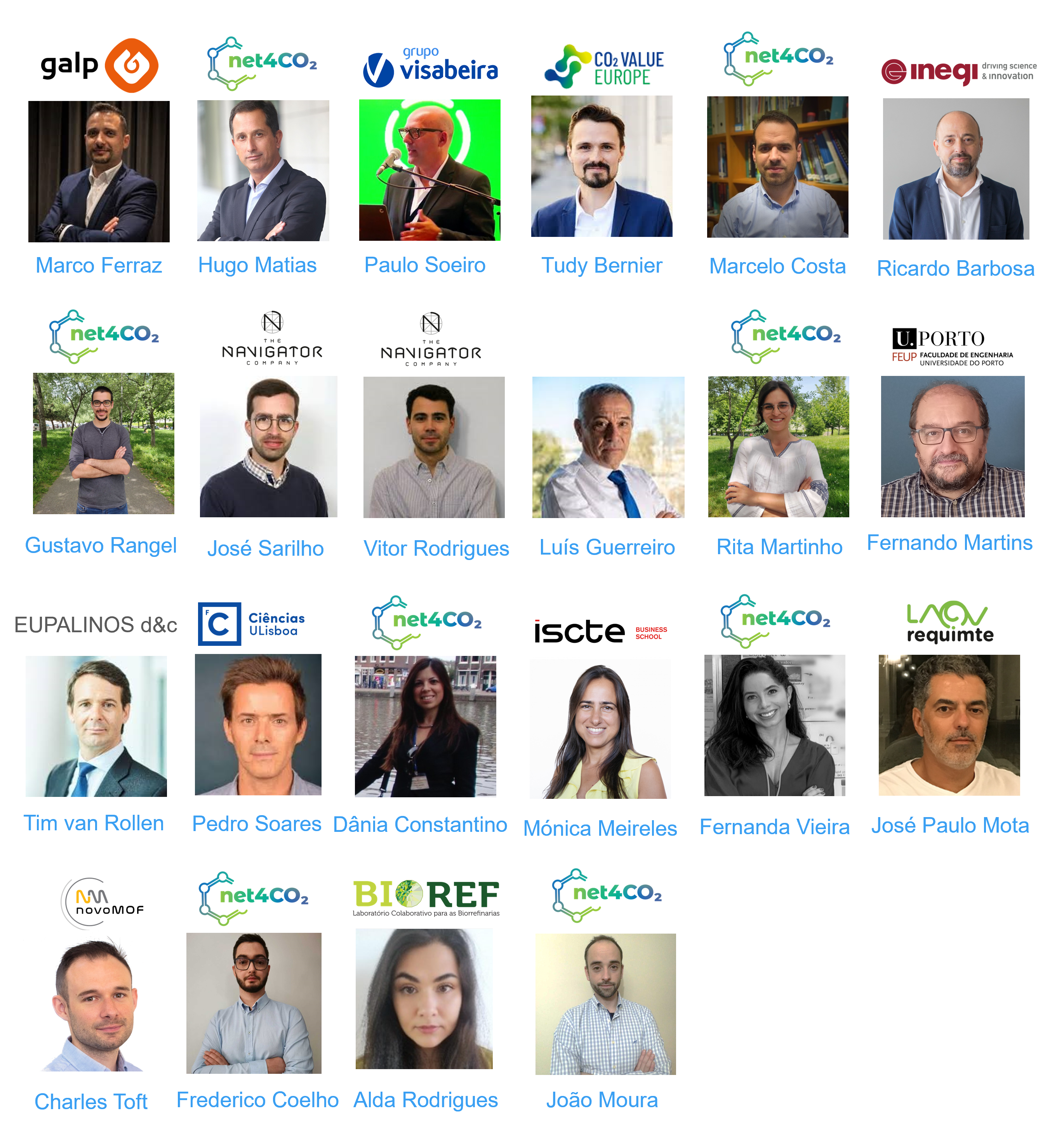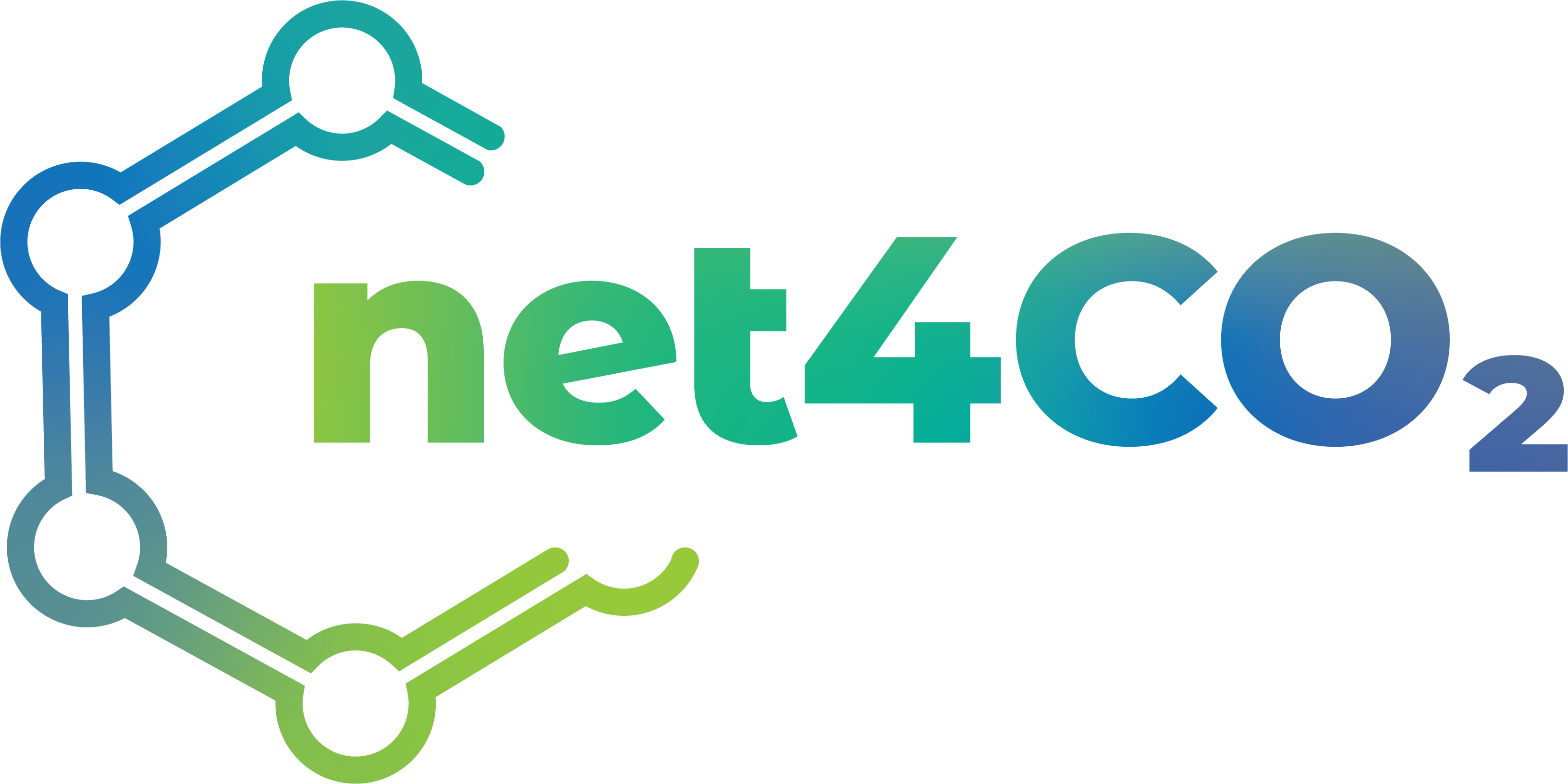CoLAB Net4CO2 presents the 1st edition of the Advanced Training Program in Carbon Capture, Utilization and Geological Storage.
This program aims to debate the most promising strategies for the decarbonization and energy transition.
A group of experts from academia, industrial players and regulators will discus the main challenges in their implementation and current status from industrial players. Also, national and European political and regulatory framework concerning the topic of decarbonization and energy transition will be addressed.

Program
Decarbonization Challenges
- Climate change and Global Warming
- Introduction to Carbon Removal, Neutrality and Circularity
- Energy vectors and Pathways to Decarbonization
- Hard to Abate Industries
- CCUS as a Solution
CO2 Capture & Transport
- Fundamentals of CO2
- Solvent based CO2 Capture
- MOFs for CO2 Capture
- Membranes for CO2 Capture
- Capture Negative Technologies
- CO2 Transport
CO2 Utilization
- Fundamentals of CO2 Utilization
- CO2 Utilization Pathways and Direct Use
- CO2 for Fuels and Mobility
- Biofuels: impact of biomethane
- CO2-based Chemicals and Materials
- Markets for CO2 and Success cases
- CCU in the paper industry
- Decarbonization of the paper industry
CO2 Geological Storage
- Fundamentals of CO2 Geological Storage
- Rock and Fluid Properties relevant for CO2 Storage
- CO2 storage capacity and volumetrics assessment
- CO2 storage monitoring
Storage Projects in Europe
CCUS Economics
- Decarbonising Global Energy
- Transition to the circular economy: main challenges
- Machine learning tools in the decarbonization of industry
- Industrial decarbonization challenges
- The Role of Hydrogen in Sustainable Fuels
- Challenges in CCUS Implementation
- CCUS costs and Business Models
- RiaStone case study
- Hard-to-abate sectors and potential
Policies & Regulations
- Decarbonization Policies and Regulations
- European regulatory framework on CCU
- Carbon Markets
- Challenges of the National Energy and Climate Plan
- Financing strategies to support decarbonization
Speakers


